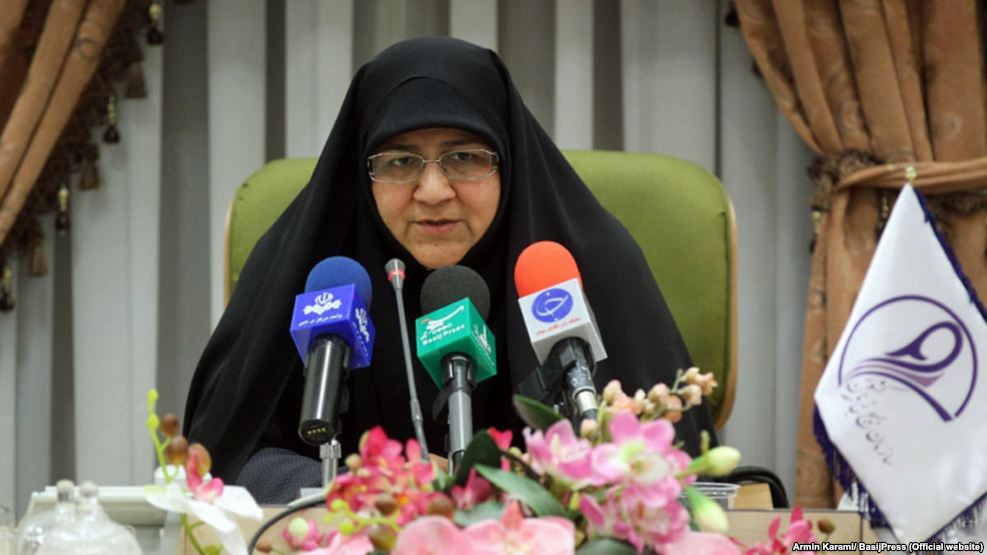Special to WorldTribune.com
By Golnaz Esfandiari Radio Free Europe / Radio Liberty
The woman who leads female volunteers in Iran’s hard-line conservative militia, the Basij, has identified a new foe.
Minu Aslani has reportedly called the promotion of gender equality illegal and demanded that the country’s powerful judiciary take action against people who speak out against such state-sponsored discrimination.

“These activities are in fact against our laws and the judiciary should take action,” the semiofficial Mehr news agency quoted Aslani as telling reporters on December 2.
In the past, Aslani has condemned efforts to increase the number of women in parliament and opposed campaigns to curb domestic violence as perceived assaults on Iranian society and traditional family values. Pushing for greater female participation threatens to “distort” the identity of Iran’s women, she has said.
The latest broadside against opponents of gender-based discrimination appears to be a volley aimed at allies of relative moderate President Hassan Rohani, who campaigned in 2013 on a pledge to fight second-tier status for women and is expected to seek a second term in 2017.
At the December 2 press conference, Aslani argued that gender equality was a Western concept that isolates women. “This is a path that has resulted in the solitude of women in the West,” she said. “Unfortunately some people in this country are following the outdated Western example — it is against human nature.”
Aslani also criticized United Nations Secretary-General Ban Ki-moon’s eight-year-old UNiTE To End Violence Against Women campaign, which is aimed at raising awareness about violence against women and girls.
Aslani argued that the initiative — which proclaims the 25th day of each month “Orange Day” — suggests to women and girls that they should not grant their love and affection to their families.
“Why have authorities in our country given a commitment to the United Nations to achieve gender equality within the next 15 years?” Aslani asked reporters.
She appeared to be referring to a UN development agenda for global action for the next 15 years, ratified by member states in 2016, that highlights gender equality and women’s empowerment as a key priority.
Aslani added that Iran should have a plan for women to be active in society while providing “emotional support” to their families. “Alongside social and economic activities, the main identity of a Muslim woman is centered on her role as a mother,” she said.
She also complained that unnamed individuals in Iran have designed a questionnaire to gauge gender equality among various state bodies, adding that such activities were also “against the law and the judiciary should take action.”
Aslani also criticized Iran’s vice president for women’s affairs, Shahindokht Molaverdi, who has expressed commitment to gender equality and angered hard-liners with her efforts to promote women’s rights. She recently tweeted to mark the International Day for the Elimination of Violence Against Women on November 25:
